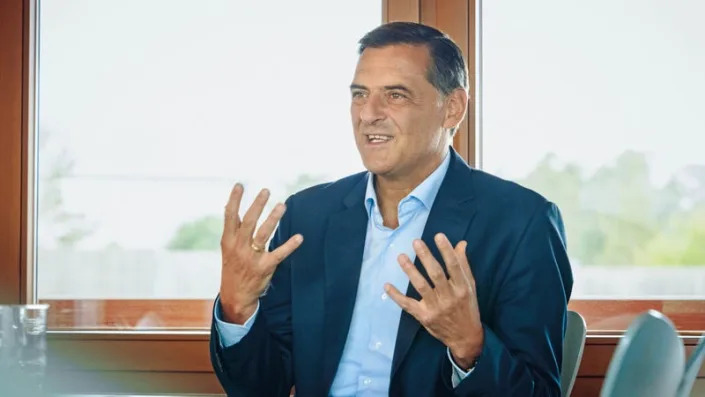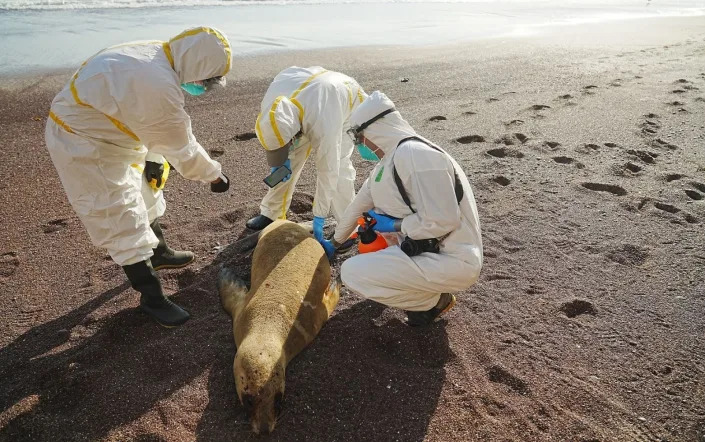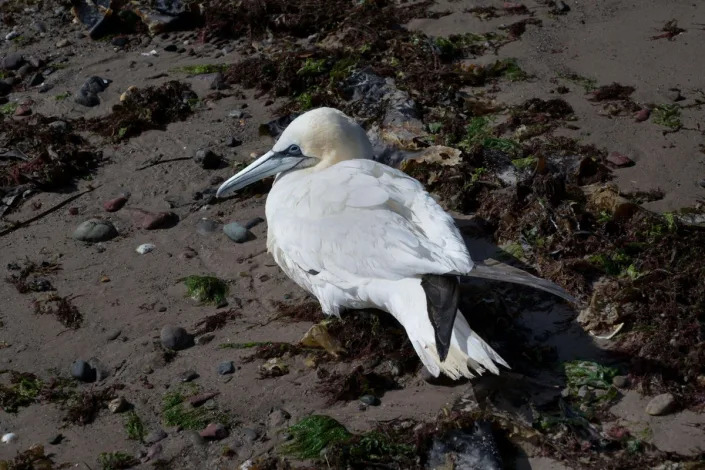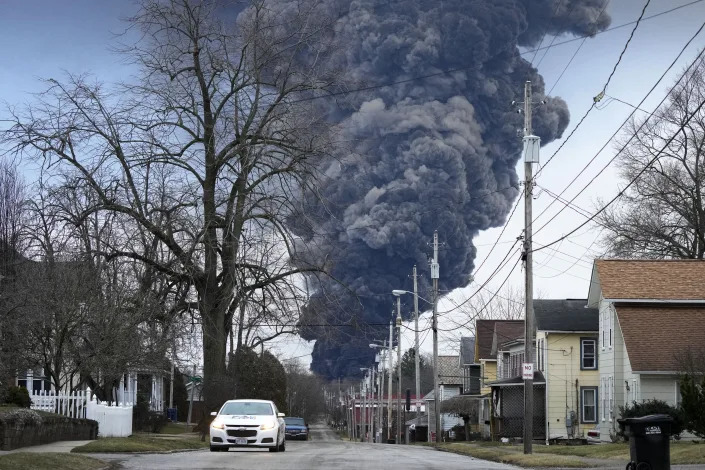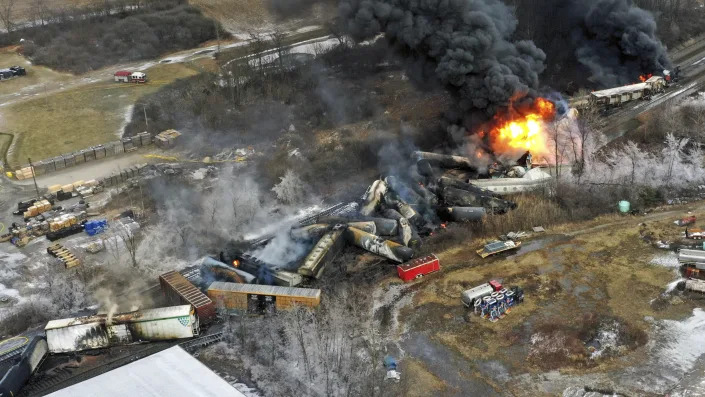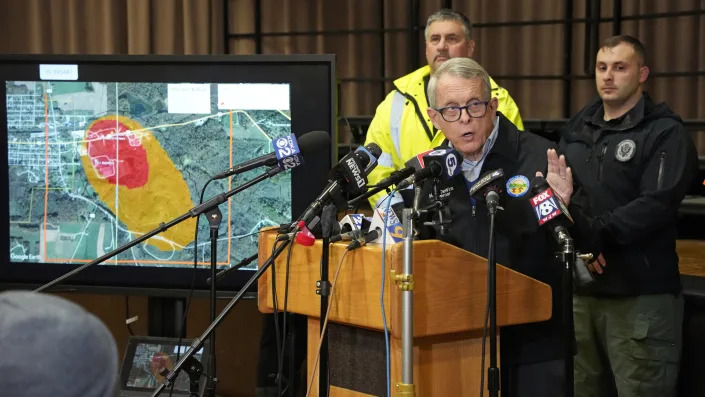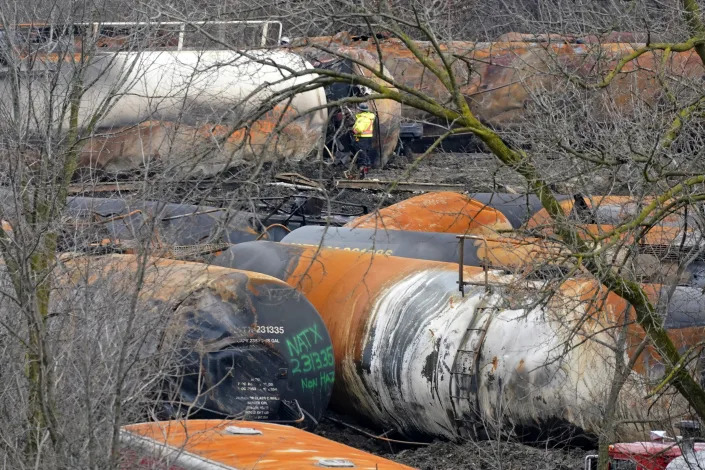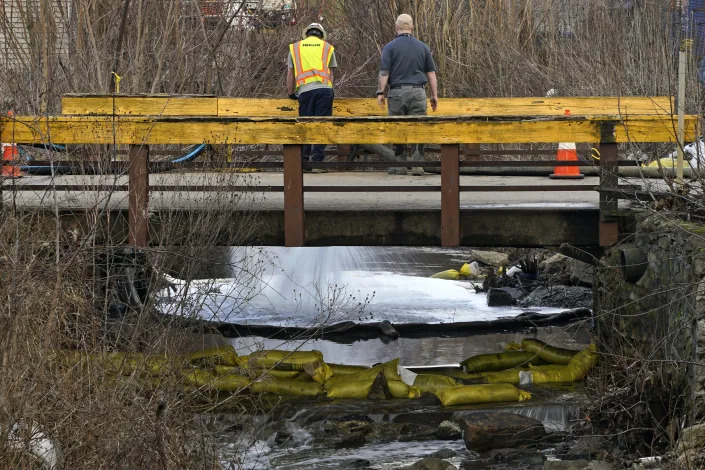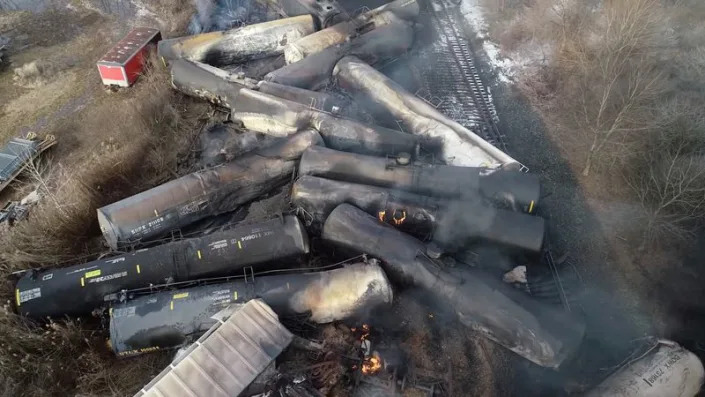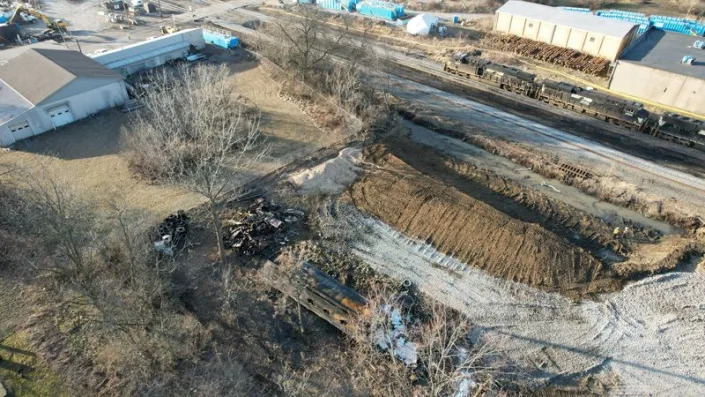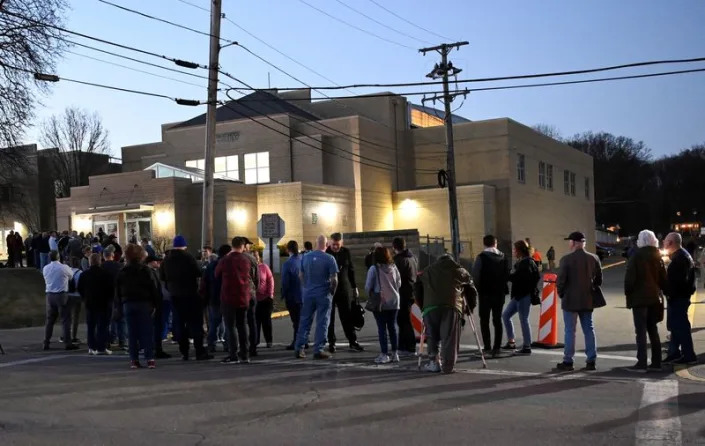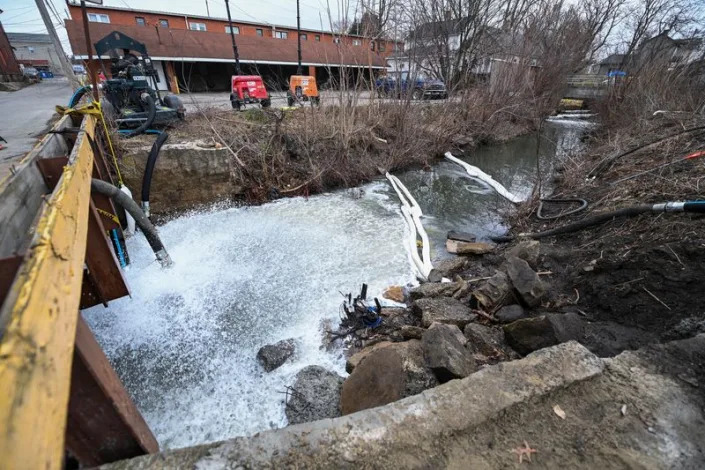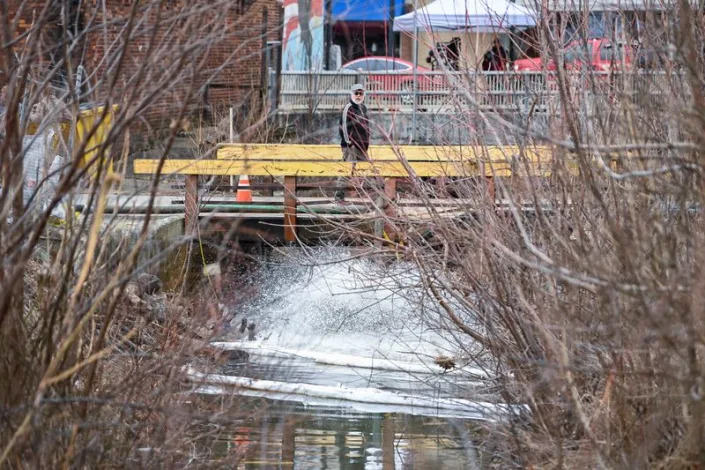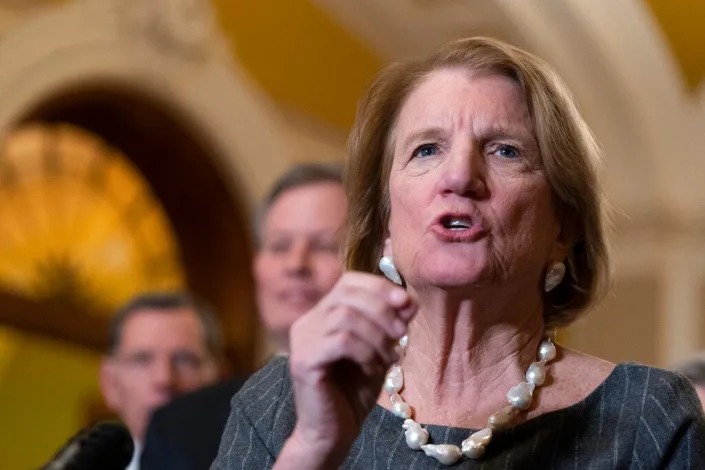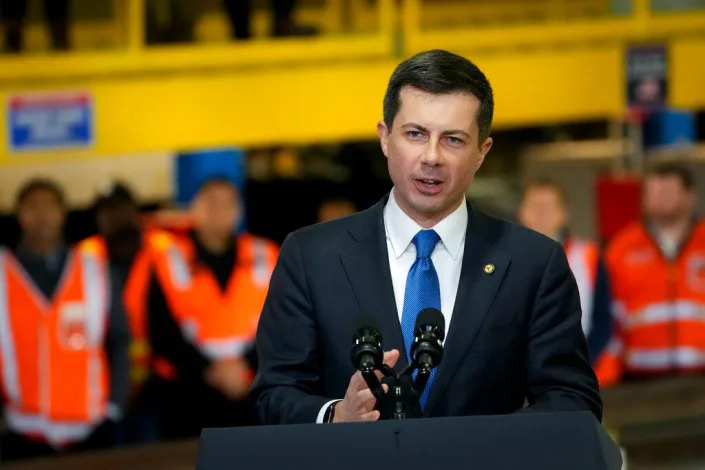‘The Evidence is Clear’: Ohio Gov Pushes For Science of Reading As Only Approach
Patrick O’Donnell
Tue, February 21, 2023

Ohio could soon join the rush of states requiring schools to use the “Science of Reading” in all its classrooms by fall, 2024 — going even further than many states by banning other literacy approaches that have lost credibility.
Currently, state law allows districts to teach reading however they want. Under his proposed bill, DeWine would force them to pick only phonics-based Science of Reading materials from a list the Ohio Department of Education will create.
Dewine has also asked the state legislature to ban use of any “three cueing” materials or lessons — an approach considered the foundation of popular teaching methods known as Whole Language, Balanced Literacy or, particularly in Ohio, Reading Recovery.
“The jury has returned,” DeWine, a Republican, said in his State of the State speech late last month where he led off his address with the importance of the Science of Reading. “The evidence is clear. The verdict is in.”
“There is a great deal of research about how we learn to read,” he said. “And today, we understand the great value and importance of phonics. Not all literacy curriculums are created equal, and sadly, many Ohio students do not have access to the most effective reading curriculum.”
DeWine is seeking $129 million from the legislature to retrain teachers and replace elementary school textbooks.
With hearings on the bill just beginning, it’s still unclear whether DeWine’s ban, which other states are also considering, will win support.
While DeWine’s plan to back the Science of Reading won strong applause at his speech and praise from some Republicans, there has been no debate yet on his ban, which only became public when bill language was released a week ago. And one of the state’s teachers unions has raised concerns about mandating a single approach to teaching reading.
There could also be logistical issues to such a dramatic shift going into effect in less than 19 months.
How many Ohio schools or teachers will need to change how reading is taught remains unclear: The state does not track how many teachers are trained in the Science of Reading or how many elementary schools are using it to teach children. The state education department could only say that “many” teachers are not trained in the Science of Reading.
Additionally, the state’s Department of Higher Education said it does not know which reading methods colleges and universities are training prospective teachers in.
DeWine’s ban also puts Ohio State University’s Reading Recovery, a widely-used reading intervention program based on three-cueing, in his crosshairs. Officials of the program did not respond to requests for comment.
The so-called “Reading Wars” of the last decade have pitched supporters of phonics against those who back related methods like whole language and balanced literacy in which students are taught to guess words they don’t know from cues such as context, pictures or letters.
Related: How COVID Reshaped the Reading Wars in Texas: Educators Say More Structured ‘Science of Reading’ Approach Worked Best During Pandemic
As studies in support of phonics and other Science of Reading concepts have mounted, even ardent champions of other methods like Lucy Calkins of Columbia University’s Teachers College have backed down and started incorporating more phonics into their books and lessons.
In the last 10 years, more than half of all states have passed laws encouraging or incorporating Science of Reading in classrooms. Ohio has moved in that direction in recent years, making Science of Reading part of the state’s recommended literacy improvement strategy, but not requiring schools to use it.
Only a few states have gone as far as DeWine proposes, including Arkansas and Louisiana, which have already banned schools from using any of the methods based on three-cueing.
Related: Review: Why You Should Buy into the ‘Sold a Story’ Podcast
But officials in eight other states are joining Ohio in seeking similar bans, according to Tom Greene, National Legislative Director for ExcelinEd in Action, the education advocacy group created by former Florida Republican Governor Jeb Bush.
Legislation has been filed in Indiana (SB 402), New Hampshire (HB 437), Florida (SB 758), West Virginia (SB 274), and Texas (HB 2162) with bills expected soon in Nevada, Oklahoma, and South Carolina outlawing three-cueing, he said.
“Eliminating three cueing is a strong step in the right direction to ensure all kids are proficient readers by the end of the 3rd grade,” Greene said. “These state leaders are looking at the research, hearing personal stories of struggling readers, and listening to the concerns of teachers about the harmful effects of this approach.”
Related: Science of Reading Gives Kids the Best Chance to Close the Literacy Gap
But Scott DiMauro, president of the Ohio Education Association, one of two teachers’ unions in the state, has already said educators shouldn’t be limited in how they teach reading.
DiMauro said last week – before the full scope of DeWine’s plan was made public — that all teachers use phonics as part of their lessons, but they are “just one piece of a larger puzzle” when it comes to teaching reading, and that a “one size fits all” solution was not a good move.
“As far as saying approach x versus approach y, as a prescribed reading plan, we don’t don’t think it’s appropriate,” DiMauro said.
Ohio State Senate education committee chair Andrew Brenner, who plans his own bill to require phonics, predicted the change would not only affect elementary schools, but also the state’s universities and teacher training programs.
DeWine’s plan sets aside $43 million in each of the next two years for the Ohio Department of Education to create training in the Science of Reading for any teacher who hasn’t had it, run training sessions and pay teachers a stipend for attending.
DeWine’s plan is built into his proposed two year state budget. Though the budget bill won’t likely be passed until just before the end of June, portions of it could be split off for vote sooner as part of Brenner’s bill or others.
Patrick O’Donnell
Tue, February 21, 2023

Ohio could soon join the rush of states requiring schools to use the “Science of Reading” in all its classrooms by fall, 2024 — going even further than many states by banning other literacy approaches that have lost credibility.
Currently, state law allows districts to teach reading however they want. Under his proposed bill, DeWine would force them to pick only phonics-based Science of Reading materials from a list the Ohio Department of Education will create.
Dewine has also asked the state legislature to ban use of any “three cueing” materials or lessons — an approach considered the foundation of popular teaching methods known as Whole Language, Balanced Literacy or, particularly in Ohio, Reading Recovery.
“The jury has returned,” DeWine, a Republican, said in his State of the State speech late last month where he led off his address with the importance of the Science of Reading. “The evidence is clear. The verdict is in.”
“There is a great deal of research about how we learn to read,” he said. “And today, we understand the great value and importance of phonics. Not all literacy curriculums are created equal, and sadly, many Ohio students do not have access to the most effective reading curriculum.”
DeWine is seeking $129 million from the legislature to retrain teachers and replace elementary school textbooks.
With hearings on the bill just beginning, it’s still unclear whether DeWine’s ban, which other states are also considering, will win support.
While DeWine’s plan to back the Science of Reading won strong applause at his speech and praise from some Republicans, there has been no debate yet on his ban, which only became public when bill language was released a week ago. And one of the state’s teachers unions has raised concerns about mandating a single approach to teaching reading.
There could also be logistical issues to such a dramatic shift going into effect in less than 19 months.
How many Ohio schools or teachers will need to change how reading is taught remains unclear: The state does not track how many teachers are trained in the Science of Reading or how many elementary schools are using it to teach children. The state education department could only say that “many” teachers are not trained in the Science of Reading.
Additionally, the state’s Department of Higher Education said it does not know which reading methods colleges and universities are training prospective teachers in.
DeWine’s ban also puts Ohio State University’s Reading Recovery, a widely-used reading intervention program based on three-cueing, in his crosshairs. Officials of the program did not respond to requests for comment.
The so-called “Reading Wars” of the last decade have pitched supporters of phonics against those who back related methods like whole language and balanced literacy in which students are taught to guess words they don’t know from cues such as context, pictures or letters.
Related: How COVID Reshaped the Reading Wars in Texas: Educators Say More Structured ‘Science of Reading’ Approach Worked Best During Pandemic
As studies in support of phonics and other Science of Reading concepts have mounted, even ardent champions of other methods like Lucy Calkins of Columbia University’s Teachers College have backed down and started incorporating more phonics into their books and lessons.
In the last 10 years, more than half of all states have passed laws encouraging or incorporating Science of Reading in classrooms. Ohio has moved in that direction in recent years, making Science of Reading part of the state’s recommended literacy improvement strategy, but not requiring schools to use it.
Only a few states have gone as far as DeWine proposes, including Arkansas and Louisiana, which have already banned schools from using any of the methods based on three-cueing.
Related: Review: Why You Should Buy into the ‘Sold a Story’ Podcast
But officials in eight other states are joining Ohio in seeking similar bans, according to Tom Greene, National Legislative Director for ExcelinEd in Action, the education advocacy group created by former Florida Republican Governor Jeb Bush.
Legislation has been filed in Indiana (SB 402), New Hampshire (HB 437), Florida (SB 758), West Virginia (SB 274), and Texas (HB 2162) with bills expected soon in Nevada, Oklahoma, and South Carolina outlawing three-cueing, he said.
“Eliminating three cueing is a strong step in the right direction to ensure all kids are proficient readers by the end of the 3rd grade,” Greene said. “These state leaders are looking at the research, hearing personal stories of struggling readers, and listening to the concerns of teachers about the harmful effects of this approach.”
Related: Science of Reading Gives Kids the Best Chance to Close the Literacy Gap
But Scott DiMauro, president of the Ohio Education Association, one of two teachers’ unions in the state, has already said educators shouldn’t be limited in how they teach reading.
DiMauro said last week – before the full scope of DeWine’s plan was made public — that all teachers use phonics as part of their lessons, but they are “just one piece of a larger puzzle” when it comes to teaching reading, and that a “one size fits all” solution was not a good move.
“As far as saying approach x versus approach y, as a prescribed reading plan, we don’t don’t think it’s appropriate,” DiMauro said.
Ohio State Senate education committee chair Andrew Brenner, who plans his own bill to require phonics, predicted the change would not only affect elementary schools, but also the state’s universities and teacher training programs.
DeWine’s plan sets aside $43 million in each of the next two years for the Ohio Department of Education to create training in the Science of Reading for any teacher who hasn’t had it, run training sessions and pay teachers a stipend for attending.
DeWine’s plan is built into his proposed two year state budget. Though the budget bill won’t likely be passed until just before the end of June, portions of it could be split off for vote sooner as part of Brenner’s bill or others.



